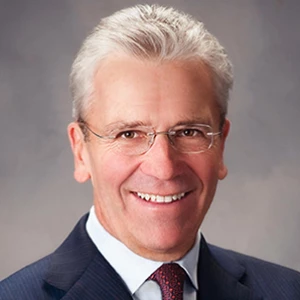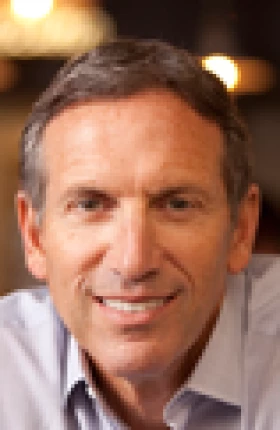When Howard Schultz initially proposed to buy Starbucks from its founders, the chain had three stores; he had a plan to expand to 150 stores. Today, Starbucks has more than 22,000 stores and is now opening in Italy—a lifelong dream for Schultz.
When Leslie Wexner opened his first store, he hoped he could expand to a three- or four-store chain to achieve economies of scale. Today, he leads an enterprise that has cumulatively created over 10,000 stores. His prize, Victoria’s Secret, will generate $8 billion in revenues this year and operates in a dozen countries.
When Brunello Cucinelli bought his first 24 kilograms of cashmere, his intent was to make a few sweaters in his local community in central Italy, earning enough money to get married, start a family, and live a peaceful, humanistic life. Today, he has more than 125 stores in the world’s most affluent urban locations and a company valued in excess of $1.5 billion.
None of these entrepreneurs had a full vision of where their businesses would ultimately go. But they had energy, curiosity, courage, and a willingness to adapt to new circumstances. They were hungry to provide opportunities for their associates, their investors, their customers, and themselves. Their stories offer valuable lessons on how to build a start-up into an iconic brand.
From the outset, all three men viewed themselves as serving in multiple roles: founder, custodian, brand manager, chief financial officer, recruiter, and head of consumer insights. They operated on shoestrings.
They also knew that their prospective customers could not think in abstractions, so they didn’t look for definitive feedback. Sure, they wanted a reaction to their product, retail environment, and service delivery. But they were not testing a concept; they were improving their concept with inexpensive live interaction. They knew that consumers change their preferences based on what they see, touch, and experience. Customers cannot envision a new concept. They cannot predict their own behavior. They can only compare against their current frame of reference.
These entrepreneurs knew that you need to make the big leap for consumers. You need to provide them with a reason to buy and a reason to brag to their friends. The lesson: entrepreneurs in the creation phase should expect novel ideas to fall on deaf ears.
For the budding entrepreneur, a good starting point is to create a qualitative understanding of market drivers. You need to get into the head of the consumer and be able to tell her story. It is both art and science. The purpose of this map of users and usage is to define dissatisfactions, hopes, dreams, and fears. Winning solutions respond to the distinct and specific needs of a group of consumers.
Today, Leslie Wexner is CEO, chair, and founder of L Brands, a company with a $25 billion market cap and two primary brands, Victoria’s Secret and Bath & Body Works. In his career, he has created The Limited, Express, Bath & Body Works, Abercrombie, and Limited Too, and has expanded Victoria’s Secret from 3 stores to 1,500. He is a master of all things retail—store operations, design, merchandising, merchandise selection, pricing, promotion, employee engagement, visual excitement, retail as theater, and, most important, invention. He became a master by working every job from housekeeping to purchasing. He is blessed with natural consumer marketing skills, and he can create specialty stores that target narrow segments, fulfill unmet needs, and reach out to adjacent consumer segments.
Victoria’s Secret is a dominant provider of lingerie to US women. It has expanded to fragrance, skin care, and a variety of related apparel categories. Its stores are now as large as 58,000 square feet, a celebration of glamour, sex, comfort, and fantasy. The Victoria's Secret flagship stores deliver the highest sales per square foot and profits in the specialty store business.
For Wexner, success in business is about anticipation, instinct, insights—and, ultimately, curiosity and experience.
“Entrepreneurs know how difficult it is to create a brand. They understand how fragile their brand’s equity is,” he says. “We know that the force of gravity is likely to bring you down. We know that success breeds competition. And the most loyal consumer is loyal for about 32 seconds. You can’t and shouldn’t count on them for their loyalty. Everything changes. So if you don’t exercise the change muscle, then you just lose the ability to change. You either go out of business or evolve into a different position.”
Wexner’s story is a profile in curiosity, in how a constant search for new patterns and understanding the eye of a merchant can be a path to riches, notoriety, and joy. It’s also a story about reinvention—from one category to another, transporting business skills and insights and investing for advantage.
My colleagues and I at BCG also believe that curiosity is the greatest source of ideas, retail revolutions, and insights. A curious mind armed with skill, experience, and knowledge can give birth to a brand revolution. A curious mind does not say to consumers, “What do you want?” A curious mind asks the questions that open up the consumer to talk about her latent dissatisfactions, hopes, wishes, and dreams. A curious mind knows that functional goods sold en masse earn a good return but breakthrough profits come from satisfying emotional needs. A curious mind will draw on all of life’s experiences to get to the big “Aha!”
This commentary originally appeared on HBR.org . It is reposted with permission of Harvard Business Publishing.






